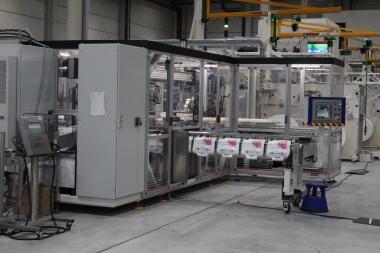Optima 3D delivers weaving technology to ASCC
UK’s Optima 3D is delivering its weaving technology to the USA, for installation at the University of Maine’s Advanced Structures and Composites Center (ASCC).
The 3D weaving system consists of an Optima 3D Series 600 shuttle weaving machine with an integrated 2,688-hook Stäubli SX jacquard and harness. It is also complemented by Optima’s compact warp delivery creel and an associated pirn winder for shuttle bobbins and a spool winder for creel spools.
Optima’s looms offer many advanced features over conventional weaving machines, particularly in terms of versatility, as a result of the comprehensive use of digital control systems allowing rapid parameter and sequence changes, coupled with an innovative shuttle system.
The ASCC is certainly no stranger to advanced technology, or indeed ambitious composite projects – in 2019 it received no less than three Guinness World Records, for the world’s largest prototype polymer 3D printer, the largest solid 3D-printed object, and the largest 3D-printed boat. In its latest project it has further introduced BioHome3D – the first 3D-printed house made entirely with bio-based materials developed in a partnership with Oak Ridge National Laboratory. The 182-square-metre prototype features 3D-printed floors, walls and roof which are fully recyclable and highly insulated with 100% wood insulation and customisable R-values. Construction waste was nearly eliminated due to the precision of the printing process.
British Textile Machinery Association (BTMA)








